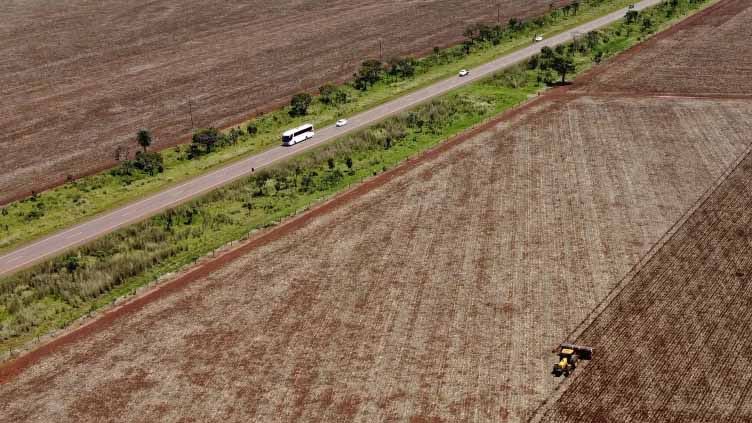Brazilian state law overturns soy moratorium that helped curb Amazon deforestation

Business
Several studies in recent years have shown the moratorium contributed to the Amazon’s preservation
AGUA CLARA, Brazil (AP) — A historic agreement that’s helped curb deforestation in Brazil’s Amazon for nearly two decades suffered a major blow after Mato Grosso, the country´s largest soybean-producing state, passed a law ending incentives for participating processing and trade companies.
The law passed last week was designed to void the Soy Moratorium — a 2006 deal in reaction to a Greenpeace investigation that linked soy produced in illegally deforested areas to U.S. commodities giants Cargill, Bunge and ADM. Under pressure, the companies agreed at the time not to buy soy produced in areas cleared after 2006. The date was later revised to July 2008.
Several studies in recent years have shown the moratorium contributed to the Amazon’s preservation. A 2020 study in the journal Nature Food found that the agreement, in combination with public policies, contributed to the steepest reduction of deforestation recorded in Brazil’s Amazon, between 2003 and 2016.
Backed by soybean producers and most of Mato Grosso´s lawmakers and mayors, the new legislation cuts tax benefits to companies that participate in any agreement that imposes restrictions on expanding agricultural activities into areas that can be legally deforested. Governor Mauro Mendes signed the law Oct. 24. It goes into effect on Jan. 1, 2025, but regulations are pending.


